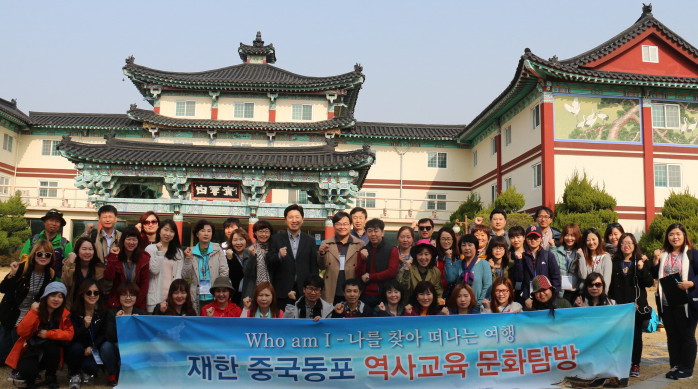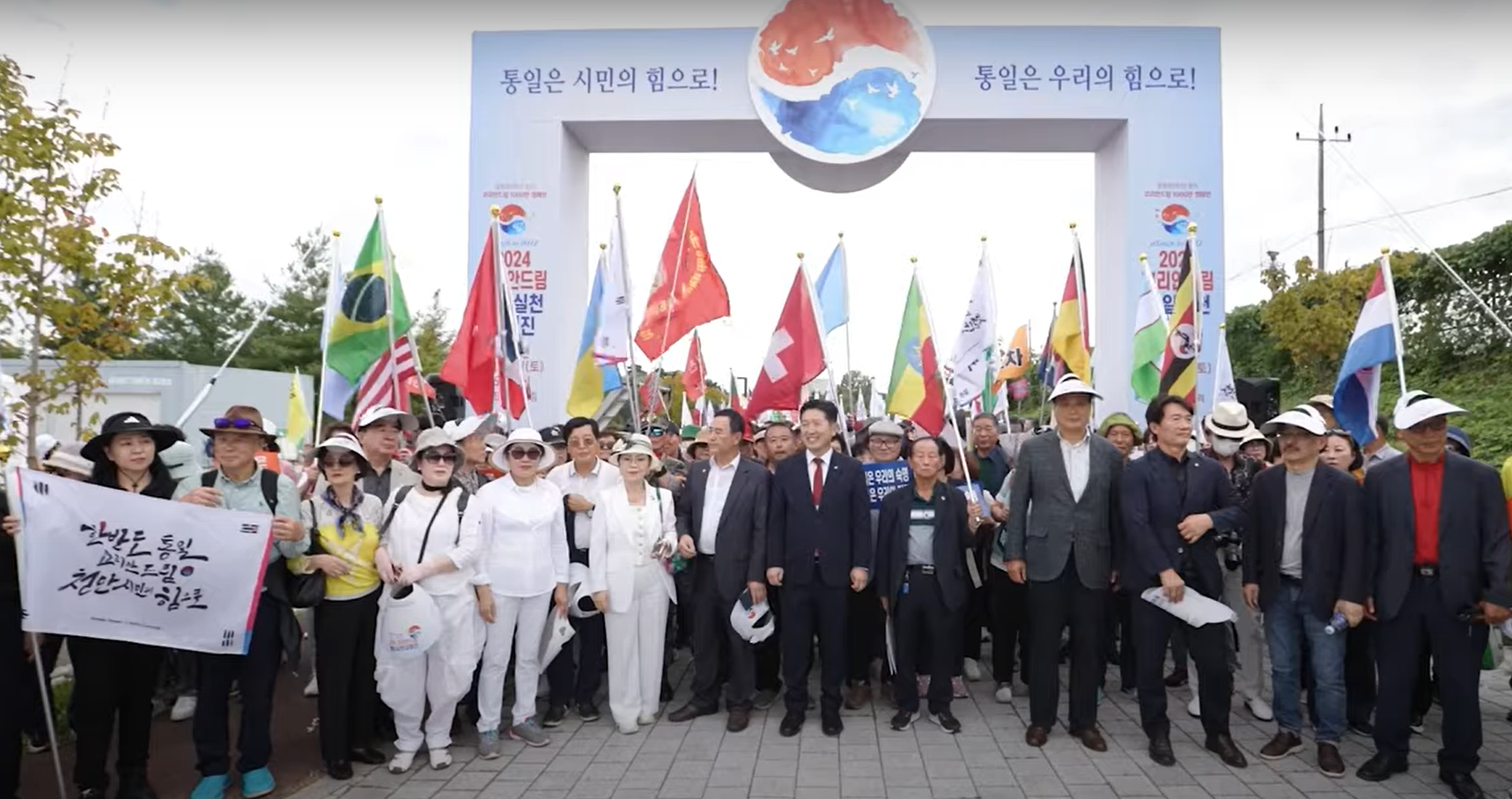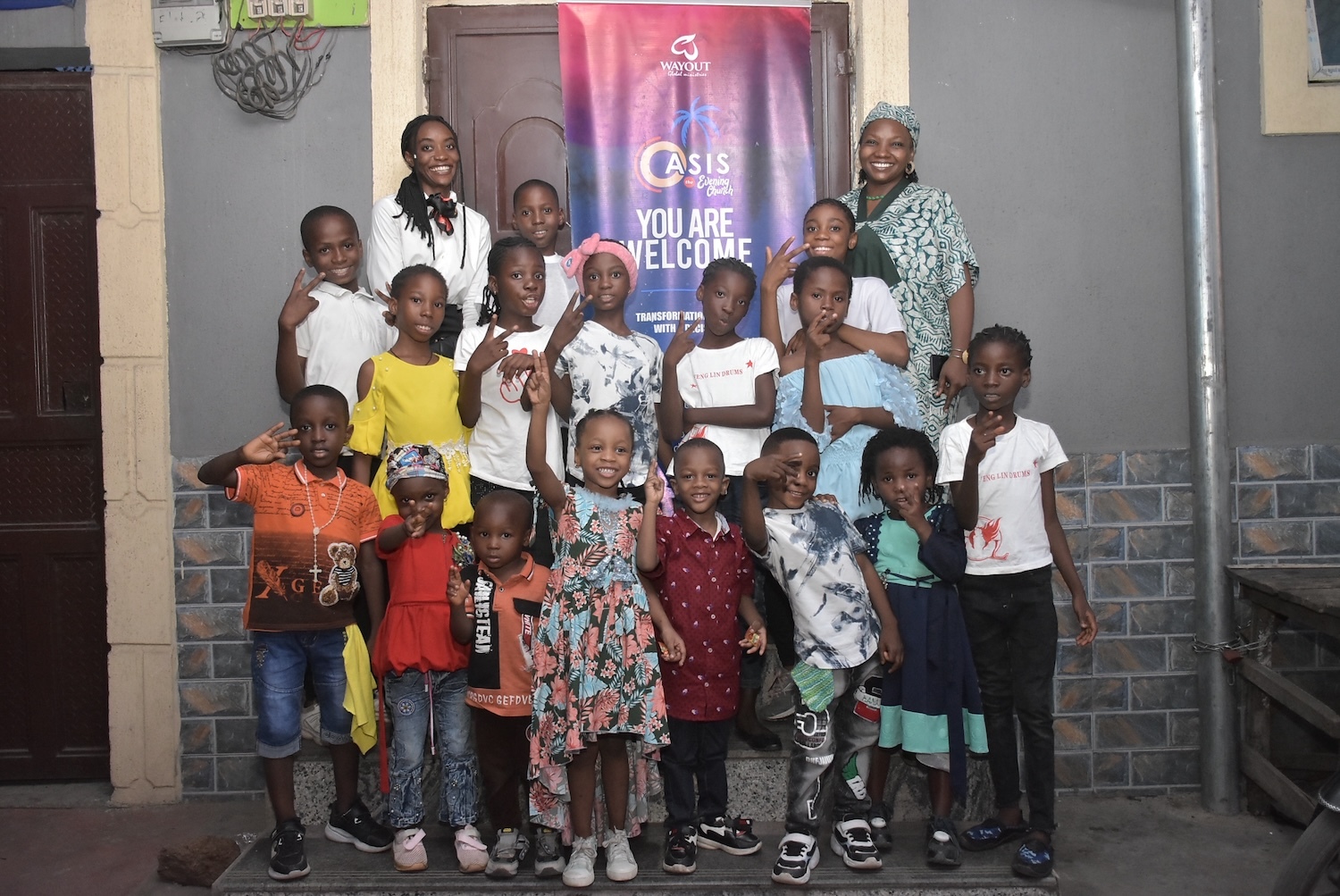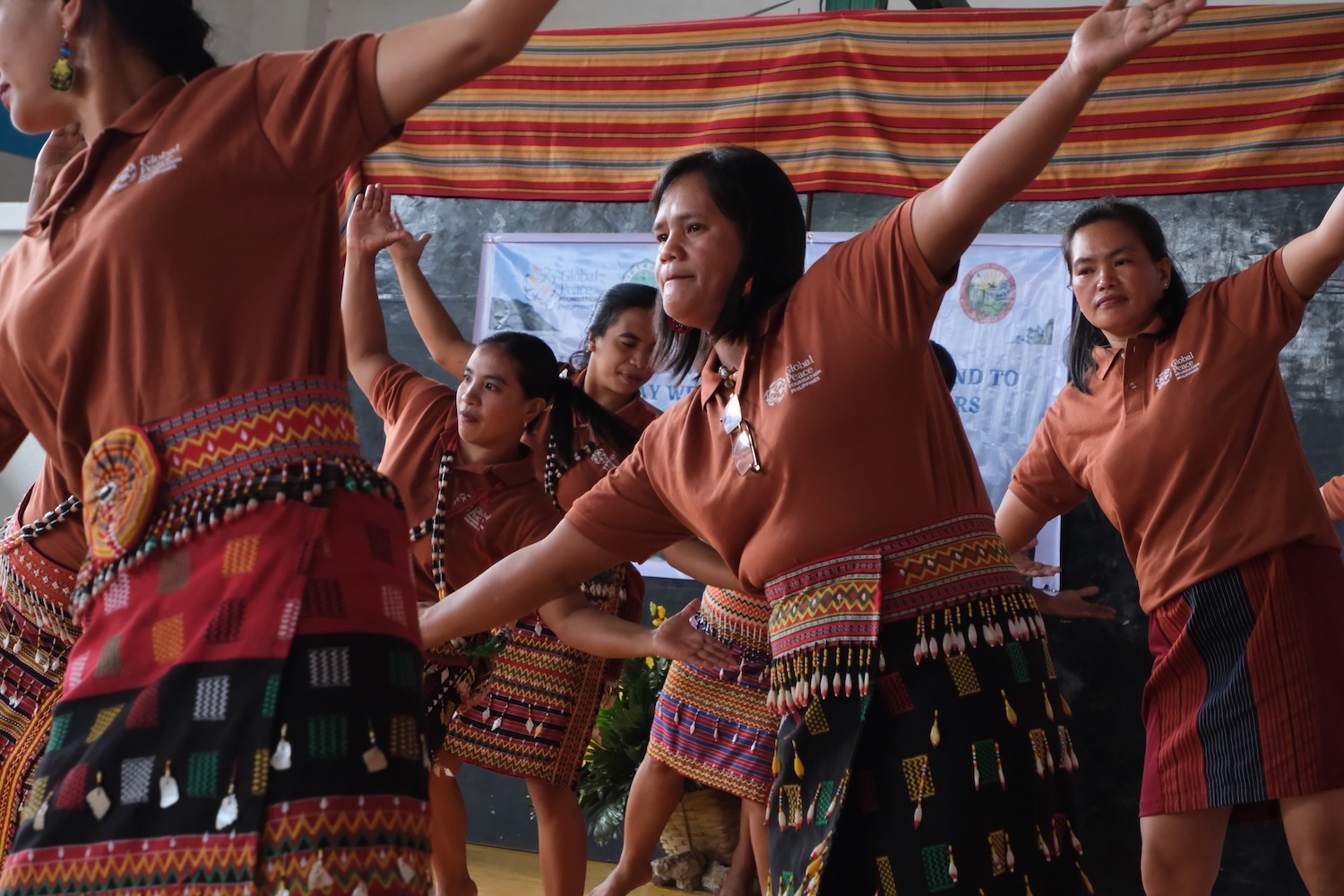The Global Peace Foundation Korea, the Korean International Trade Association, and the China-Korea Hanmaeum Association co-hosted a history and cultural education tour for Koreans living in China on March 21-22.

The program, “Who Am I,” which alluded to a best-selling Korean introspective novel, was designed to help ethnic Koreans living in China discover their identity.
Forty participants came from Yanbian prefecture, where ethnic Koreans, most of whom originally relocated during the Japanese occupation of Korea, account for 32 percent of the population. The prefecture maintains some autonomy from the larger People’s Republic of China due to its large Korean population. Both Chinese and Korean are recognized official languages.

Top to bottom: Bulgaksa Buddhist Temple, Daereungwon Tomb complex, Cheonseongdae observatory and Wolji Pon.
The tour was a rare opportunity for the Koreans living in Yanbian to get direct exposure to their culture and history. The group visited historic sites in Gyeongju, including the Daereungwon Tomb complex with relics from the royal family of the Silla Dynasty; Cheomseongdae, the oldest surviving astronomical observatory in East Asia, built in seventh century; Wolji Pond, a man-made garden pond in Donggung Palace dating from the Silla era; and Bulguksa, the main temple of the Jogye Order of Korean Buddhism, build in 528.
Beyond cultural visits, participants had an opportunity to dig deep into their history with lectures by Korean history professor Lee Jae Hee.
For much of its 6,000-year history, the different kingdoms covered the Korean peninsula and sometimes parts of Manchuria. The Three Kingdoms in the first century included Goguryeo, Baekje and Silla, which eventually gave birth to the unified kingdom of Silla that would last roughly 1,000 years.
Many ancient milestones of Korean culture and history were established during this era. In 936 Goryeo replaced Silla, an era during which Buddhism flourished, The Joseon Dynasty would follow in 1392, where the Korean alphabet was introduced and Korea’s unique brand of neo-Confucianism developed.
Participants also were introduced to the Global Peace Foundation’s groundbreaking approach to Korean reunification that focuses on defining a common vision and values for the Korean people as a precursor to policy and processes. They also discussed the role that the Korean Diaspora in China could play in securing reunification.
The Global Peace Foundation – Korea is hosting programs for the Korean Diaspora scattered around the world to learn about the unique heritage of the Korean people, grounded in the philosophy of Hong Ik Ingan, to live for the sake of humanity.



